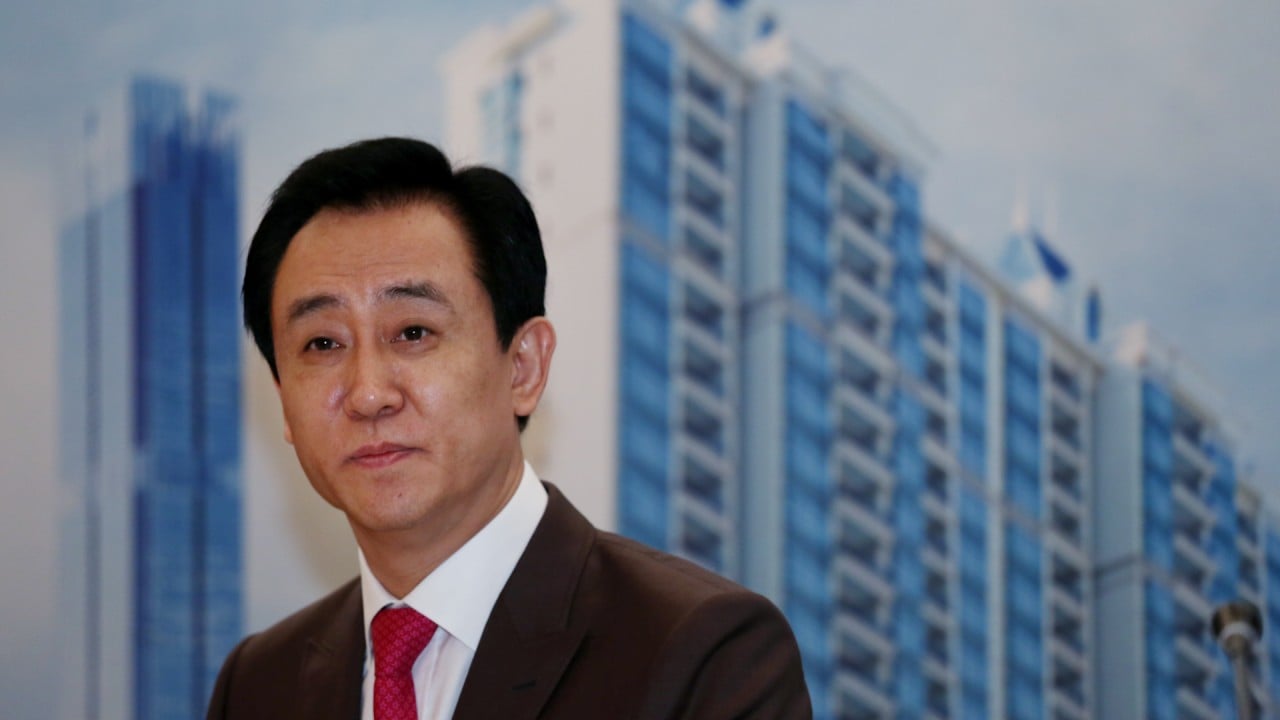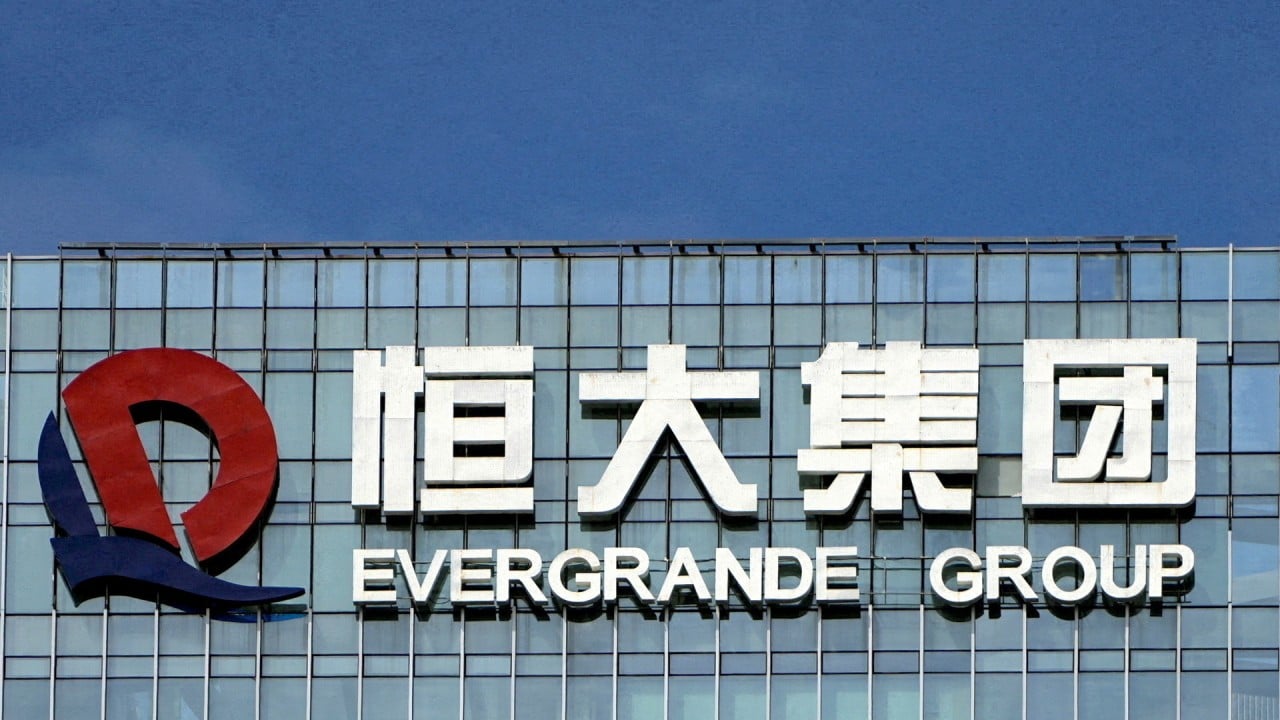Although many lawyers and debt-restructuring accountants believe the bankruptcy protection application is procedural and signals the restructuring negotiations are near their conclusion, critics in mainland China have accused Hui of trying to hide his wealth overseas and avoid paying creditors in the country.
How China’s property woes test Beijing’s bottom line of no systemic risks
How China’s property woes test Beijing’s bottom line of no systemic risks
One of the most vocal critics was Wong Hongsheng, founder of the television manufacturer Skyworth, who posted a video on the social media platform WeChat on Monday accusing Hui of avoiding his responsibilities.
“It is despicable that Hui has chosen to be the enemy of the Chinese people … by applying for the bankruptcy protection in the US so he can leverage the confrontation between China and the US and hide his wealth,” he said.
Wong also linked the bankruptcy protection filing to Hui’s recent divorce and his ex-wife’s migration to the US.
“All of us entrepreneurs should take this as a warning. When we face difficulties, we should try our best to resolve them on our own. You can’t play a deceptive game to protect your wealth, and let the country and the people suffer,” Wong said.
A spokesman for Evergrande said the company had no comment to make about Wong’s video.
Wong, who is known as Huang Hongsheng on the mainland, founded the Skyworth group in the 1990s.
The self-made billionaire resigned as Skyworth’s chairman in 2006 after he and his brother Wong Pui-sing were sentenced to a six-year jail term in Hong Kong for stealing more than HK$50 million (US$6.4 million) in company funds.
The pair was also found guilty of fraudulently obtaining share options from the Hong Kong-listed firm.
Leaving his wife and son to take care of the TV business, Wong ventured into electric vehicles soon after his release in 2009. He created Skywell, a leading electric bus brand in China, and more recently launched Skyworth-branded EVs.
China Evergrande’s Hui Ka-yan sees wealth dwindle as developer’s prospects sour
China Evergrande’s Hui Ka-yan sees wealth dwindle as developer’s prospects sour
Wong’s video, which was published on Monday afternoon, quickly became one of the top trending items on the platform, garnering over 100,000 views by early evening.
Deng Yuwen, a former deputy editor of Study Times, official newspaper of the Central Party School, said Hui had mistakenly calculated that the Chinese government would never let his property empire fail or target the super-rich if they are suspected of undermining social stability.
“He totally underestimated President Xi Jinping’s political determination to deflate China’s property bubble, becoming the only major property group to buck the trend and expand, acquiring a large amount of land and using it to obtain loans from banks and nonbank financial institutions or creditors,” Deng said.
“Beijing certainly wants to shore up the confidence of the private sector now, given the sluggish economy, but Xi will not be held hostage by private capital.”
Evergrande has ‘no bullets’ left as debt crisis lights up China’s social media
Evergrande has ‘no bullets’ left as debt crisis lights up China’s social media
Deng also noted that news of Hui’s detention was announced two days ahead of Sunday’s National Day celebrations, where Xi said “our strength comes from unity and confidence is more valuable than gold”.
“That shows Beijing’s concern on the potential illegal capital outflows, as it will weaken China’s ability to defend [its] financial stability,” Deng said.
Reining in China’s financial risk has been a key policy objective for Xi over the past decade, which has seen the country experience a few rounds of severe capital exodus.
The central bank burned through a quarter of the national foreign exchange reserves and imposed heavy capital controls to halt capital flight from 2015-17.
China’s retiring central bank governor Yi Gang calls for economic prudence
China’s retiring central bank governor Yi Gang calls for economic prudence
What has particularly worried Beijing is the practice by some conglomerates of financing their overseas asset acquisitions with borrowings from Chinese banks and investors.
Steps taken in recent years to control these risk have included banning yuan-based funds from overseas investments and a crackdown on overseas money transfers.
Zhou Cuikun, a commercial lawyer at Beijing Yingke Law Firm, suggested that investigators might scrutinise Evergrande’s wealth management business for evidence of illegal fundraising.
In a commentary posted on various social media platforms on Friday, Zhou said Evergrande Wealth had defaulted last year, causing investors to protest outside the company’s offices in Guangzhou.
About 100 disgruntled investors of Evergrande Wealth staged a sit-in in September 2021 amid concerns that the company would be unable to honour redemptions by its investors amid its debt woes.
Yang Guoying, a well-known economic commentator in China, also wrote in social media that Hui would unlikely escape unscathed.
“As the real controller of Evergrande Wealth, how can boss Hui get away with it?” he said, adding that the tycoon might face a lengthy jail term if convicted of fraud.




